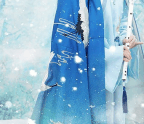
“All good writers write terrible first drafts. This is how they end up with good second drafts and terrific third drafts.”
– ANNE LAMOTT
IF seasoned writers know one thing, they know this: you don’t get it right the first time. Now and then, you might find your voice or get your story down – and even, on occasion, with some flair – but most likely, you’ll have to do several drafts. A novel, for the most part, is a work in progress.
But let’s think about that second draft because that’s where revision begins.
What’s revision about?
How much can you, or should you, accomplish in a second draft? Should you wait a while between the first and second drafts? Are you liable to mess up that first draft with your cuts and additions? What kind of mistakes might you make?
We spoke to several accomplished novelists to get their takes on these questions.

HOW SHOULD YOU APPROACH THE second draft of a novel? Should you concentrate on certain elements or aspects of your novel, or is anything fair game? How about fine-tuning the language at this point?
Revision strategies certainly vary from writer to writer. One approach is to flesh out your first draft – if it needs it. According to Eliza Knight, and international bestselling author of , her first drafts tend to be pretty “bare” or “skeletal.” The






